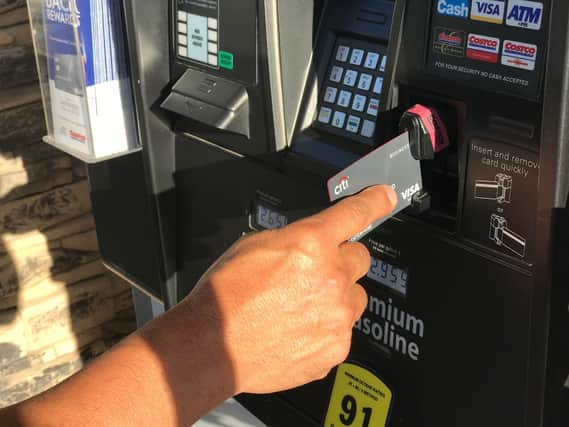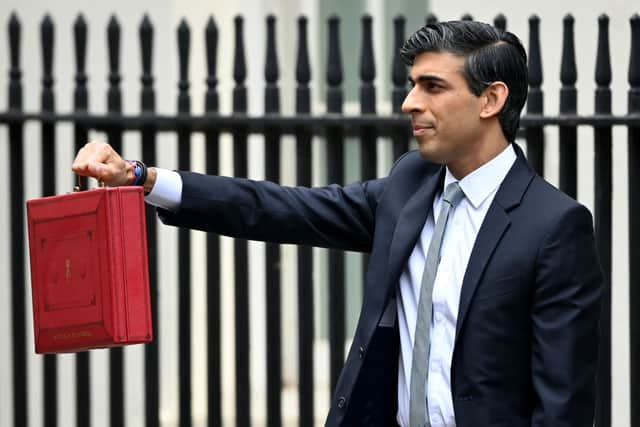Government faces £5bn fuel duty black hole as EV sales soar


The Treasury could lose up to £5 billion a year in fuel duty revenue by 2028 as the country’s motorists switch to electric vehicles, according to a new report.
The RAC Foundation predicts the Government will be left facing a massive shortfall in income from the fuel-related levy as EV use accelerates and sales of petrol and diesel cars decline.
Advertisement
Hide AdAdvertisement
Hide AdFuel duty accounts for 57.95p of the cost of every litre of fuel sold and the report estimates that as fewer drivers fill up, annual income from duty on cars could drop by a third, from £16.4bn in 2019 to £11.4bn by 2028.
RAC Foundation director Steve Gooding said Chancellor Rishi Sunak faced a dilemma as the Government’s own policy of encouraging EV uptake threatened to create a “terminal decline” in income.


He warned that higher vehicle taxes or road pricing could be among the measures introduced to make up for the shortfall.
EV sales jumped by 76% in 2021, with more electric cars sold last year than in the previous five years combined. In contrast, petrol car registrations were down 16% and diesel down 48% on 2020’s figures.
Advertisement
Hide AdAdvertisement
Hide AdElectric cars accounted for 12% of all new car registrations in 2021, a pattern expected to accelerate further in 2022.
Mr Gooding commented: “Whilst we will all welcome a shift to greener driving, the sooner it happens the more pressing the dilemma for the Chancellor who faces a looming hole in the public finances.
“Ministers must soon decide how and from where they are going to plug the fiscal hole electrification will inevitably cause.
“It could be that they choose to regard a drop in yield from motoring taxation as the price to be paid for saving the planet.
Advertisement
Hide AdAdvertisement
Hide Ad“That is all well and good but to give certainty to the individuals and businesses who buy the two million or so new cars sold in the UK annually that begs a conscious policy decision, communicated widely, not something we drift into by default.”
The report suggested potential ways to plug the gap could involve increasing fuel duty and other taxes, such as vehicle excise duty, but warns this would hit the poorest drivers with the oldest, least economical cars hardest.
Alternatively, it suggested road pricing could be considered, either based purely on the distance a car is driven or on a number of factors including where and when a car is driven as well as how far it travels.
The report warned that while road pricing was the “perfect academic solution” it would be a political and logistical “nightmare” for any government trying to implement and pointed to widespread public opposition to similar proposals by the Labour Government in 2009.
Advertisement
Hide AdAdvertisement
Hide AdThe Foundation said the estimate was based on “optimistic” forecasts of EV uptake. It added that the decline would be even faster if it was not for an expected short-term rise in the number of petrol and plug-in hybrid cars on the road caused by drivers switching away from diesels but not straight to EVs.
Comment Guidelines
National World encourages reader discussion on our stories. User feedback, insights and back-and-forth exchanges add a rich layer of context to reporting. Please review our Community Guidelines before commenting.
